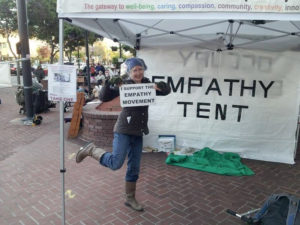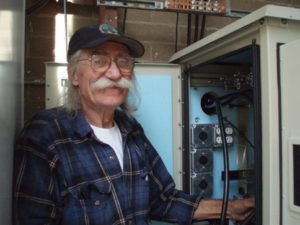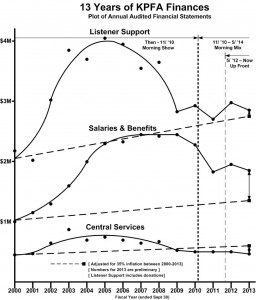Meet Your New KPFA Local Station Board Members
from United For Community Radio’s slate
(For complete results, click here)
Thank you to the United for Community Radio community and the many KPFA members who held events, distributed literature, posted on social media, endorsed and voted for our candidates. We look forward to working with you to expand and strengthen our independent KPFA and Pacifica radio network. The new members will be seated at the January meeting of the Local Station Board.

Akio Tanaka
Akio Tanaka—Listener Representative
I first encountered Pacifica in 1970 t the height of the Vietnam War, an amazing new station came on the air broadcasting anti-war progressive voices. It was exhilarating and at the time a somber experience because the station was bombed off the air shortly after it began its broadcast, but it crystallized for me why Pacifica needs to survive. Read more.

Carol Wolfley
Carol Wolfley—Listener Representative
I want KPFA to cover YOUR interests: on the radio; on the community calendar; on podcasts and on website videos, I advocate for dependable reporting of people’s responses to political, economic and environmental challenges, discrimination and militarized violence; and for drama, comedy, and enlivening music that heals our souls. Read more.

T.M. Scruggs
T.M. Scruggs—Listener Representative
I am an educator, musician, and long time social activist, involved in community/non-profit media for over 30 years. My various forms of organizing and cultural work have proven to me that media is the crucial battleground for providing information and framing issues that determines a societys political direction. I am a founder of TRNN-TheRealNews Network (therealnews.com), and on the Board of Advisers of truthout.org. Read more.

Tom Voorhees
Tom Voorhees,— Listener Representative
My primary focus will be rebuilding KPFA and all five Pacifica stations news departments back to their former award-winning national and international investigative news reporting on critical progressive issues. Presently, the three remaining Pacifica news departments depend mostly on a single commercial news feed read over the air, which discourages continuing listeners and new subscribing members. Read more.

Lisa Dettmer
Lisa Dettmer — Staff Representative
(Lisa replaces Josiah Alderete who is unable to serve. Her seat is still unofficial. She joins Sabrina Jacobs in serving as an independent staff representative.)
I would like to see KPFA be the community radio station it was meant to be. One where there is actual respect and cooperation between the staff and the listeners so that we are living the mission of democracy that we preach. And I would like to see KPFA expand it’s audience which is absolutely necessary if we are to survive by hiring a development/marketing director who will expand our audience and bring in some much needed grants for invaluable programs like the Apprenticeship program. Read more.


